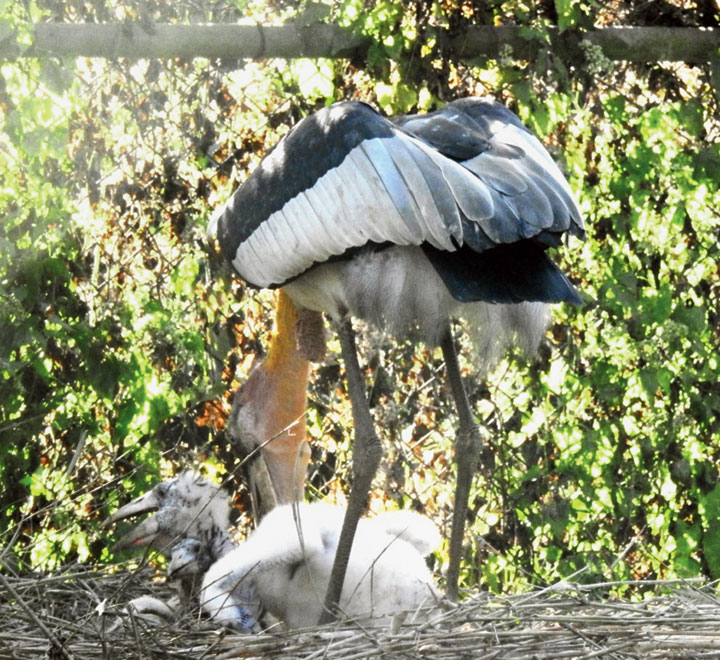The Assam State Zoo-cum-Botanical Garden and Aaranyak have been successful in hatching a pair of greater adjutant stork chicks in an artificial platform within the zoo enclosure in the first experiment of its kind, the zoo authorities revealed on Tuesday.
The zoo’s divisional forest officer, Tejas Mariswamy, conveyed New Year wishes and said, “We are very proud to share this news. This happened for the first time in a zoo. Before this we don’t have any reports of this endangered bird being bred in any zoo or in captivity.”
This rarest of storks, the hargila, is on the brink of extinction due to habitat loss stemming from indiscriminate felling of big trees and dwindling wetlands.
Biologist Purnima Devi Barman, who leads the Greater Adjutant Conservation Project of Aaranyak, said, “In 2017, Aaranyak started collaborating with Assam zoo to create assisted breeding platforms for the captive storks. The birds nested since 2017 but had failed to hatch. Finally, we found success on November 26 and it has been the first recorded pair of greater adjutants to breed in an artificial platform. It was possible due to the support of Tejas Mariswamy and a team of doctors led by Bijoy Gogoi and animal keepers Rajani Kanta Deka and Mr Basumatary.”
It was a double success when after 10 days a second hatchling emerged from the breeding platform.
The commotion created by zoo visitors was monitored and care was taken so that the birds did not suffer from disturbance, said the zoo officials.
Assam minister for forests Parimal Shuklabadiya congratulated the team on the success of the breeding programme and wished them more success.
Bibhab Kumar Talukdar, the CEO of Aaranyak, said, The report of successful breeding of the greater adjutant is indeed a great news.”
Cathy King, the chair of the European Association of Zoos and Aquaria (EAZA) and Ciconiifomes and Phoenicoptericormes Taxon Advisor Group, congratulated the team through a Whatsapp message and said, “Although the greater adjutant storks have been kept in zoos throughout the world, they have not successfully bred until now. The breeding of this species at the zoo is a great contribution to the conservation of this endangered species. This breeding could only occur if the birds have a suitable environment and good care.”










